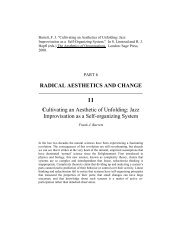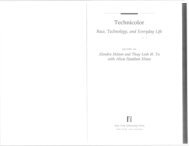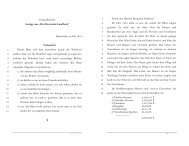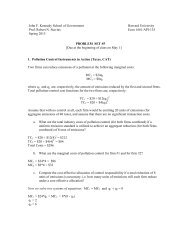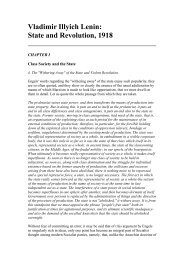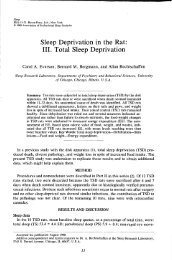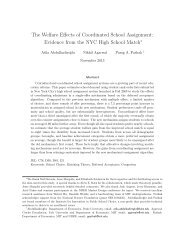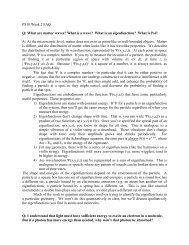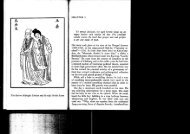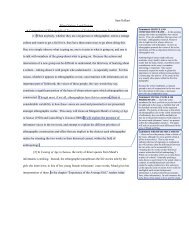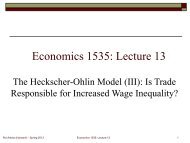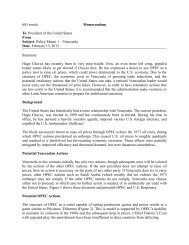CUisis AuthoU(s): ReinhaUt Koselleck and Michaela W ... - iSites
CUisis AuthoU(s): ReinhaUt Koselleck and Michaela W ... - iSites
CUisis AuthoU(s): ReinhaUt Koselleck and Michaela W ... - iSites
Create successful ePaper yourself
Turn your PDF publications into a flip-book with our unique Google optimized e-Paper software.
<strong>Koselleck</strong> + Crisis<br />
of the first half of the century-<strong>and</strong> beyond-had been imported from the<br />
U.S.A., Engl<strong>and</strong>, <strong>and</strong> France. Thus in 1837 the Cologne Chamber of Commerce<br />
reported: "Because in the last two decades our province had entered<br />
into significant direct <strong>and</strong> indirect relations with North America, it was<br />
inevitable that the adverse effects of this crisis would be felt by our commerce<br />
<strong>and</strong> factories."126<br />
The belief in the recurrence of crises became no less entrenched. In<br />
1837, Rother, the head of the Prussian Merchant Marine, speaks of "common,<br />
periodically recurring pressures" (without using our term)127; as does<br />
Harkort in 1844: "those crises of market surpluses . . . which consistently<br />
recur within short periods."128 The sense of inevitability is spreading as<br />
well: "there exists no means by which to prevent a commercial crisis.'"129<br />
Needless to say, economic crises were increasingly attributed to technical<br />
innovations. As noted by Henrik Steffens: "There is perhaps no crisis in<br />
modern times more devastating than that caused by the ever increasing introduction<br />
of railways."130<br />
From the 1840s on, the economically-based concept of crisis permeates<br />
the growing literature of social criticisms-coming from all political <strong>and</strong><br />
social camps-that had begun to flood the market.'31 "Crisis" was well<br />
suited to conceptualize both the emergencies resulting from contemporary<br />
constitutional or class specific upheavals, as well as the distress caused by<br />
industry, technology, <strong>and</strong> the capitalist market economy. These could be<br />
treated as symptoms of a serious disease or as a disturbance of the economy's<br />
equilibrium. This undoubtedly prompted Roscher, in 1854, to coin<br />
the general formula: these are crises "the changing substance of which may<br />
take changing forms. Such crises are called 'reforms' if they are resolved<br />
peacefully under the auspices of the established legal system, but 'revolu-<br />
126 "Jahresbericht der H<strong>and</strong>elskammer Keiln" (1837), cited in Kuczynski, Lage der Arbeiter,<br />
Part 1, vol 11, 69; see also ibid., 42, 100, 110, 132.<br />
127 Christian Rother, "Memor<strong>and</strong>um des Leiters des k6niglichen Seeh<strong>and</strong>lungsinstituts"<br />
(April 3, 1837), cited in ibid., 7, footnote.<br />
128 Friedrich Harkort, Bemerkungen tiber die Hindernisse der Civilisation und Emancipation<br />
der unteren Klasse (Ebersfeld, 1844); see also J. Kuczynski, Die Geschichte der Lage<br />
der Arbeiter unter dem Kapitalismus, Part 1 vol. 9: Bargerliche und halbfeudale Literatur<br />
aus den Jahren 1840 bis 1847 zur Lage der Arbeiter. Eine Chrestomathie (Berlin, 1960),<br />
127.<br />
129 Karl Quentin, "Ein Wort zur Zeit der Arbeiterkoalitionen" (1840), Kuczynski, Lage<br />
der Arbeiter, Part 1, vol. 9, 185.<br />
130 Henrik Steffens, "Was ich erlebte. Aus der Erinnerung niedergeschrieben" (1844),<br />
cited in Manfred Riedel, "Vom Biedermeier zum Machinenzeitalter," Archiv fir Kulturgeschichte,<br />
43 (1961), 103.<br />
131 See Kuczynski, Lage der Arbeiter, Part 1, vol. 9, 47, 90, 94, 127f., 160ff., 185.<br />
391



